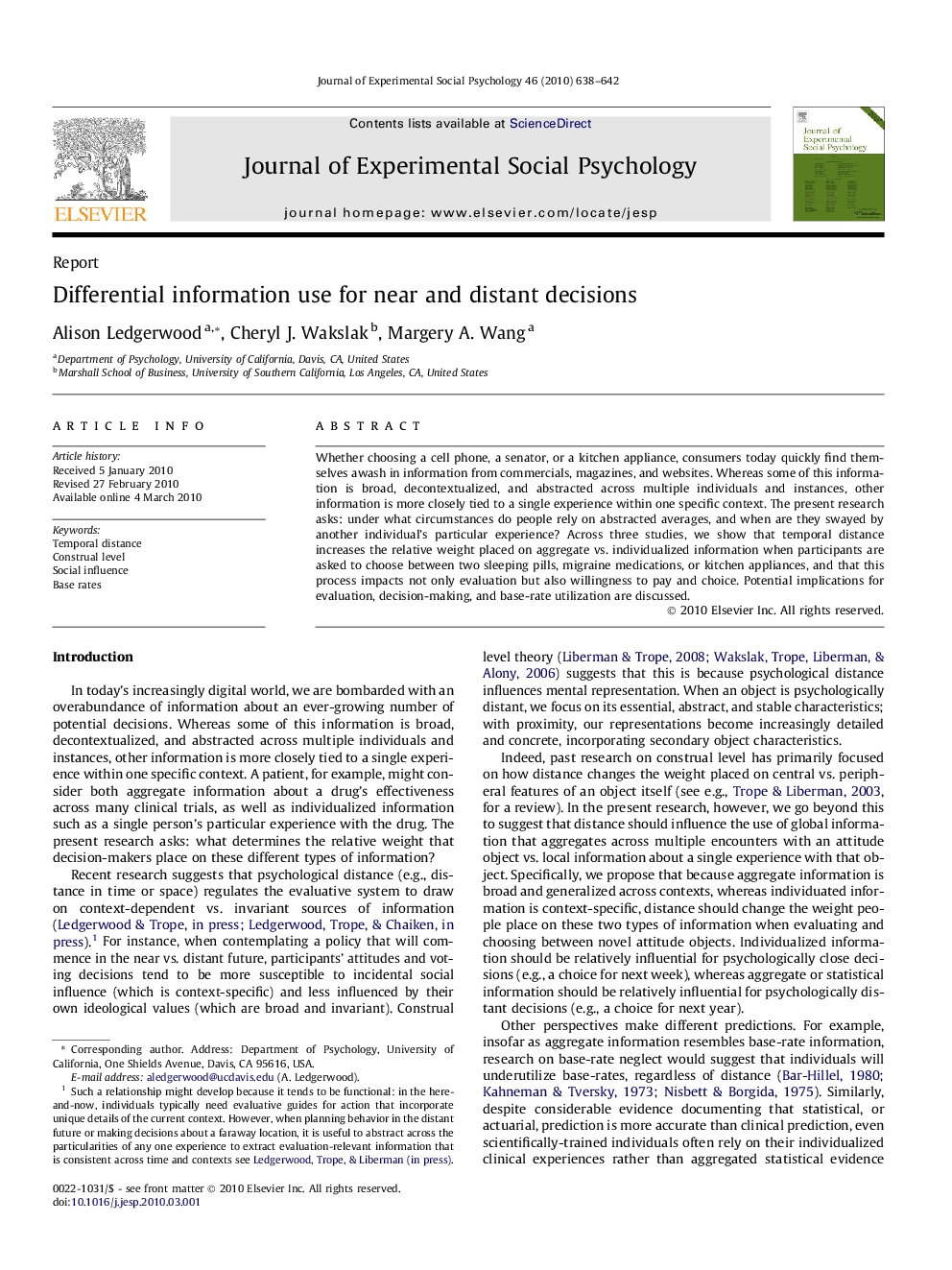| Article ID | Journal | Published Year | Pages | File Type |
|---|---|---|---|---|
| 948710 | Journal of Experimental Social Psychology | 2010 | 5 Pages |
Whether choosing a cell phone, a senator, or a kitchen appliance, consumers today quickly find themselves awash in information from commercials, magazines, and websites. Whereas some of this information is broad, decontextualized, and abstracted across multiple individuals and instances, other information is more closely tied to a single experience within one specific context. The present research asks: under what circumstances do people rely on abstracted averages, and when are they swayed by another individual’s particular experience? Across three studies, we show that temporal distance increases the relative weight placed on aggregate vs. individualized information when participants are asked to choose between two sleeping pills, migraine medications, or kitchen appliances, and that this process impacts not only evaluation but also willingness to pay and choice. Potential implications for evaluation, decision-making, and base-rate utilization are discussed.
